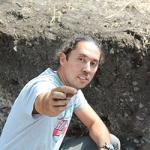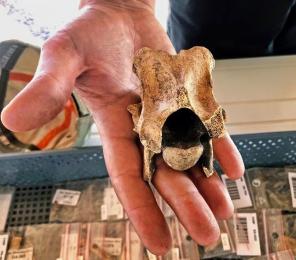
João Cascalheira, Ph.D.
What do you enjoy most/what do you find most interesting about your research topic?
One of the most important topics of my research over the last few years has been to better understand how past hunter-gatherer populations have coped with climatic and environmental modifications over time, both in terms of technological developments and social dynamics. Muge shellmiddens are a very special place to study such adaptations given the particular level of complexity represented as well as its proximity to a particularly important environmental changing moment: the end of the ice age.
How does citizen science support your research?
As an archaeologist and a teacher, I believe public outreach and citizen science should be the starting point and final goal of every scientific endeavor. Collaborative research with non-specialists is always very fulfilling since it allows me, as a researcher, to think differently – transculturally – with a more open mind about past and present human societies.
What is one of your favorite moments in the field?
One of my favorite moments in the field was the discovery of our first human skeleton in the Cabeço da Amoreira shellmound. Back then, I was a graduate student and the moment certainly stands out as my first contact with the remains of a person who inhabited that specific place close to 7,000 years ago.
Education
- Ph.D. in Archaeology, University of Algarve (PT)
- M.A. in Archaeology, University of Algarve (PT)
- B.A. in Cultural Heritage, University of Algarve (PT)
